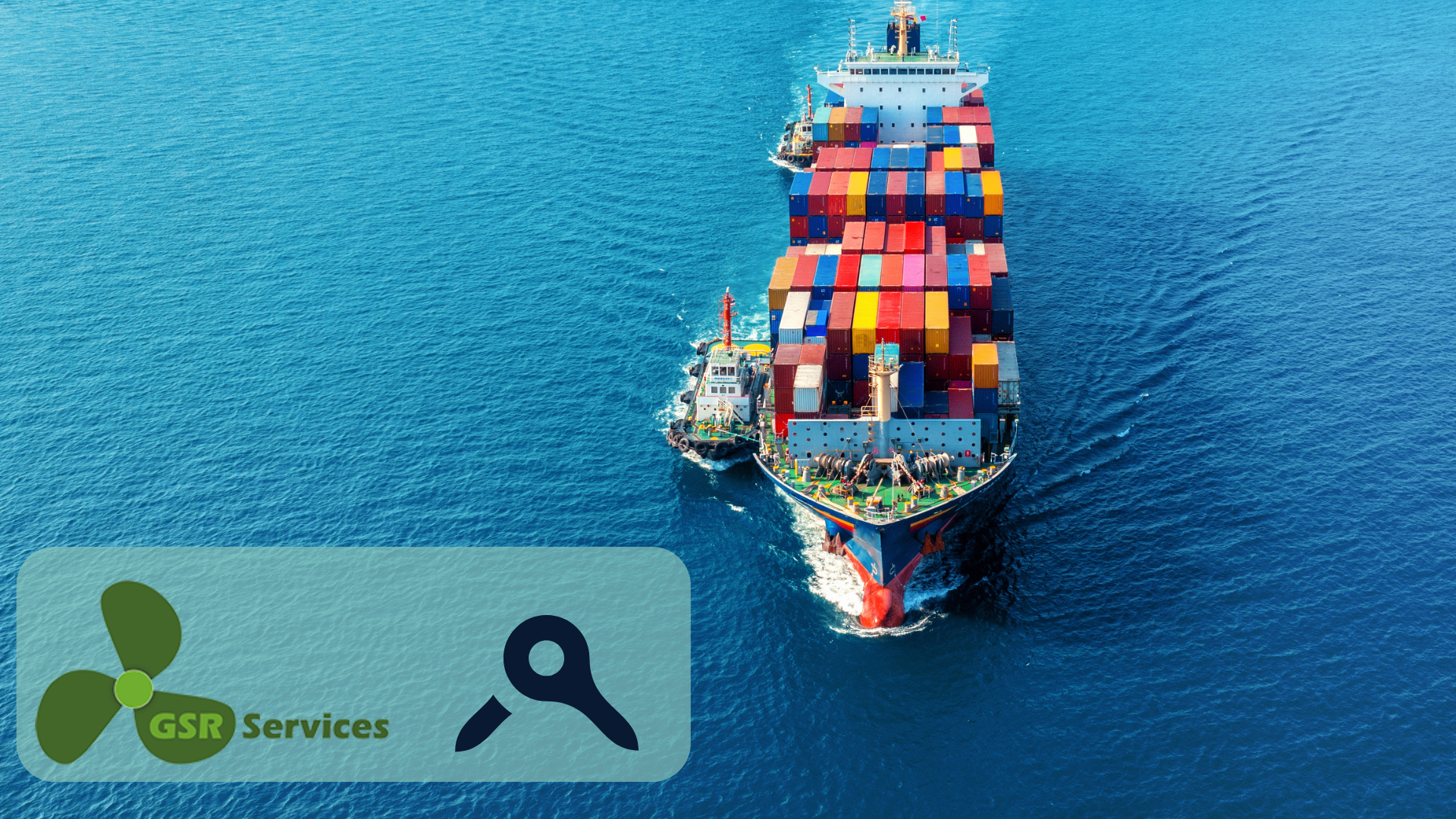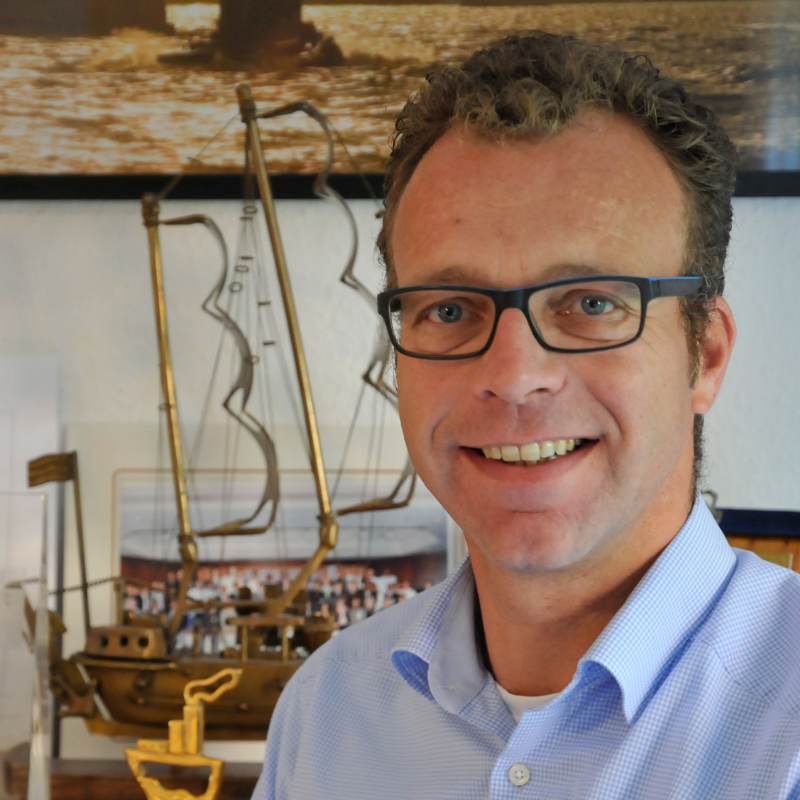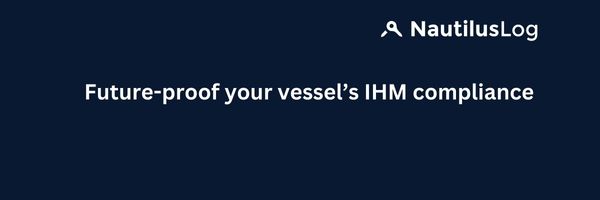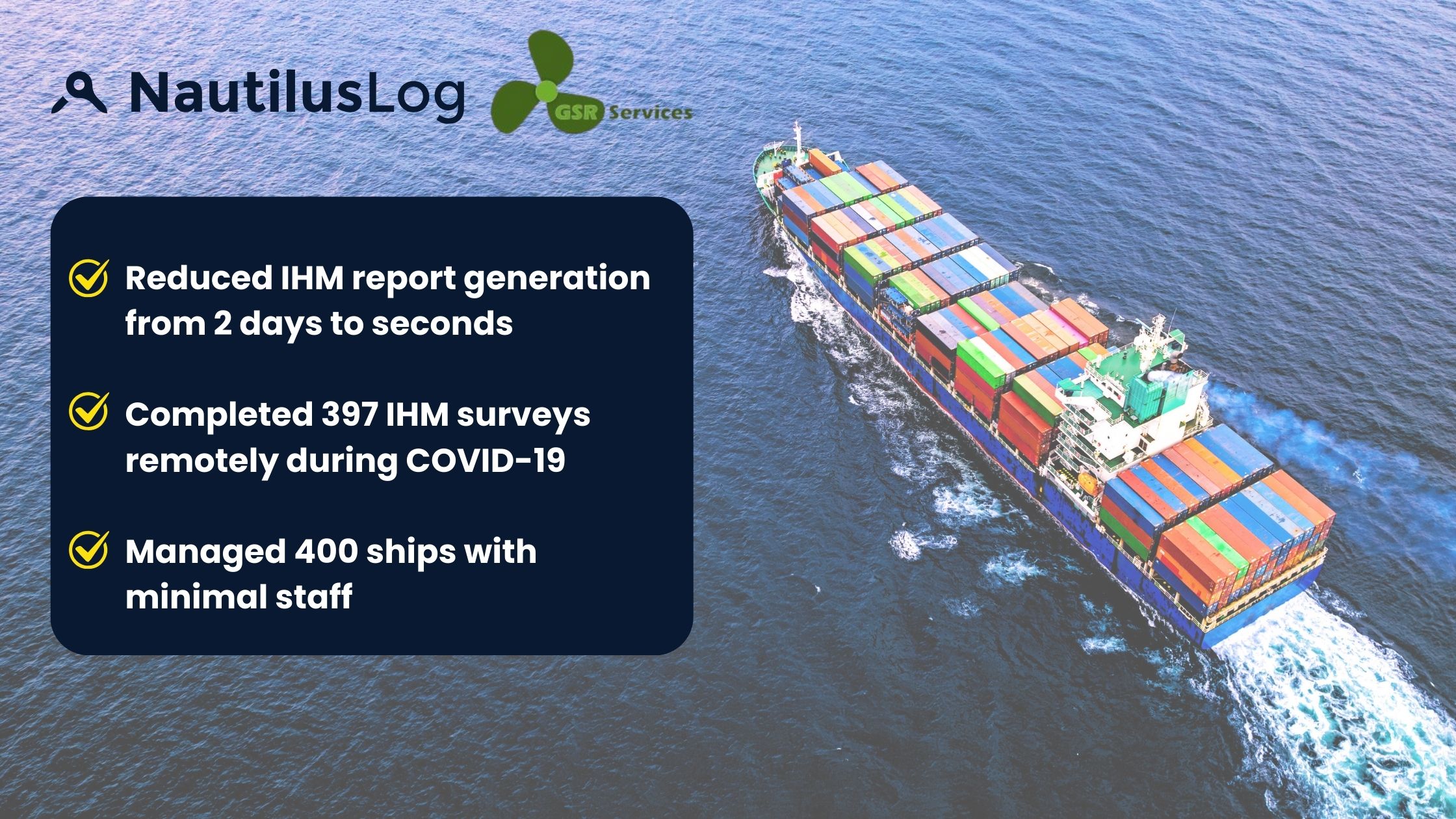February 3, 2025 | By Ananya Borgohain
The Future of Ship Recycling: GSR’s Success with NautilusLog
Germany's GSR Services, established 2011, pioneers green ship recycling and compliance solutions worldwide. Learn how they transformed IHM documentation and ship recycling compliance to meet Hong Kong Convention 2025 requirements from their Founder Henning Gramann.

What are the most pressing environmental concerns in ship recycling today?
There are many critical aspects in safe and environmentally sound ship recycling. At GSR, we have been involved with ship recycling for many years, supporting recyclers in enhancing safety and environmental protection. We worked with more than 60 ship recycling yards, primarily in Asia. This has provided us with a deep understanding of the recycling process and the importance of identifying hazardous materials on board. Our knowledge extends from proper development of IHMs to the efficient maintenance throughout ships´ life, ensuring that information is accurate and as per the needs of recyclers.
I was personally involved in developing legal requirements which are now at hand in form of the IMO's Hong Kong Convention since 2005. As part of the German delegation, I helped to develop various associated guidelines and got a good understanding of the roles of all stakeholders such as manufacturers, suppliers, shipyards, shipowners, brokers, cash buyers and ship recyclers.
Our aim is to provide accurate data efficiently, safeguarding workers and the environment. We focus on compliance, safety, and environmental protection, while expanding our scope to include cradle-to-cradle principles for enhancing sustainability throughout a ship’s lifecycle. To handle the enormous amounts of data involved, we rely on tools like NautilusLog to streamline processes, communicate effectively, and maintain transparency.
When you first approached NautilusLog, was data compliance your main challenge?
Before NautilusLog, we faced significant challenges with data collection and reporting. We began actively developing Inventory of Hazardous Materials (IHM) in 2011. Back then, the process was cumbersome, requiring days of manual work, from inspecting ships and taking samples to typing and compiling final reports.
The inefficiencies were unsustainable but manageable given the low demand for IHMs at the time. It was clear that we needed a solution to streamline processes and manage the upcoming workload. By 2017, I approached NautilusLog and we collaboratively developed the IHM application. While the tool helped us documenting the inspection and sampling activities onboard, it increased especially the efficiency when generating the required IHM-reports. What took 2 days in the office was reduced to seconds, so it not only reduced time bust also costs significantly. This shift was pivotal in meeting compliance needs, particularly as demand grew for meeting the EU ship recycling regulation's 2020 deadline.
How did COVID restrictions impact your operations?

When the pandemic hit in 2020, we faced unprecedented challenges. Despite travel restrictions, we completed 397 IHMs that year alone, thanks to NautilusLog.
We already had an international network of over 100 well trained and carefully selected IHM experts, many of whom I had personally trained before COVID. By granting access rights to experts closest to the ships, we minimized travel costs, avoided Covid-restrictions and ensured timely compliance. Without NautilusLog, managing this workload would have been nearly impossible.
What specific features of NautilusLog have been most valuable to your operations?
NautilusLog’s transparency and efficiency stand out. The tool streamlines IHM development and maintenance processes, allowing for real-time communication, data management, and compliance tracking.
For example, when shipowners struggled with IHM maintenance, NautilusLog and us worked closely together to develop new workflows tailored to their needs. Due to our previous research activities we incorporated principles for compliance data exchange from other industries and combined it with our knowhow on IHM-compliance at every level. Additionally, the tool allows us to prevent fraudulent or incorrect data submissions via integrated document review options, which is crucial for maintaining IHM integrity over a ship’s lifecycle. This long-term accuracy safeguards workers, clarifies liability issues among supply chains and aligns with GSR’s commitment to quality and sustainability.
How has NautilusLog impacted your team’s workload and efficiency?
NautilusLog has significantly streamlined our operations. Managing thousands of suppliers and purchase orders manually would have been impossible. NautilusLog consolidates all this data, providing clear statistics and tracking capabilities.
Our team, which manages around 400 ships, operates efficiently with minimal staff. Without integrated functions like word rules and evaluated standard catalogues as well as coordinated communication processes in NautilusLog, we would require ten times the workforce to achieve the same results.
What areas do you think NautilusLog could improve?
While the tool is highly effective, there is always room for further developments. For instance, more advanced automation features and enhanced supplier integration could further reduce manual work. Continuous updates based on evolving industry standards are also critical.
What new regulations or global initiatives do you see affecting the industry?
There are several. For instance, the EU taxonomy is steering businesses to include sustainability in their performance metrics. Along with this, the Green Claims Directive will penalize non-transparent or exaggerated claims, which is long overdue. We’re working on solutions related to sustainability, cradle-to-cradle product design, and emission evaluations—including scope 3 emissions around ship operations, supplies and construction.
One significant initiative we’re pursuing is creating CO2 tags for new builds, evaluating emissions from construction through operational life and recycling stage. This involves tracking materials like steel, copper, and hazardous substances to promote better segregation, upcycling, recirculation and sustainability practices, something which is currently impossible with the existing scope of IHMs (even though some claim otherwise).
Do you believe there is enough capacity in ship recycling facilities?
While capacity exists, much of it is currently heavily underutilized due to geopolitical issues and market dynamics. Recycling volumes are expected to surge as the much increased global fleet strives to meet its carbon-neutral targets by 2050. However, many facilities are not prepared for this demand. Some yards operate at high standards, while others fall far short. So capacity alone isn’t the problem, it’s about ensuring sufficient and acceptable capacity.
As fleets are growing and renewal accelerates, ship recyclers will face higher demand, and compliance with the Hong Kong Convention will become increasingly crucial with to enter into force mid-2025. Facilities that fail to meet standards risk losing business as all recycling nations have ratified HKC and have to ensure that standards are met, otherwise sub-standard facilities have to close. This shift will emphasize the value of accurate IHMs, as poor documentation can reduce asset values and create safety and compliance risks.
How do cross-border regulations impact ship recycling?
The flag of a ship matters less now, as all major ship recycling countries have ratified the Hong Kong Convention. Regardless of a ship’s flag, compliance with Hong Kong standards is mandatory for nearly all recycling facilities. However, cross-border regulations like the Basel Convention complicate matters. Ships classified as waste under Basel require complex documentation and approval processes between exporting and importing countries, which means after the recycling decision has been taken, which is not necessarily only the final voyage.
Many shipowners circumvent these requirements by declaring recycling decisions in international waters, but this isn’t a sustainable or transparent solution. The recent Basel Ban Amendment further restricts the export of hazardous waste, including ships, from OECD to non-OECD countries, creating additional challenges for European shipowners. As regulations evolve, also importance of accurate data maintained via tools like NautilusLog increases.
What role do you see digital tools playing in the future of the industry?
Digital tools are absolutely essential for ensuring efficient compliance. From IHM maintenance to broader sustainability initiatives, tools like NautilusLog enable us to convert regulations into actionable workflows, streamline operations, and maintain transparency across stakeholders, also with big data.
We’ve chosen NautilusLog because of its flexibility and collaborative approach to development. It’s clear that digital solutions will continue to play a pivotal role in the industry’s evolution.
Is there anything else you would like to add?
We’re always looking for innovation—whether with NautilusLog or other initiatives. There’s so much potential in this industry, and we’re excited to contribute to its growth and sustainability. Thank you for the opportunity to share our insights.
Ready to streamline your IHM documentation? Let's talk about your fleet's needs.

